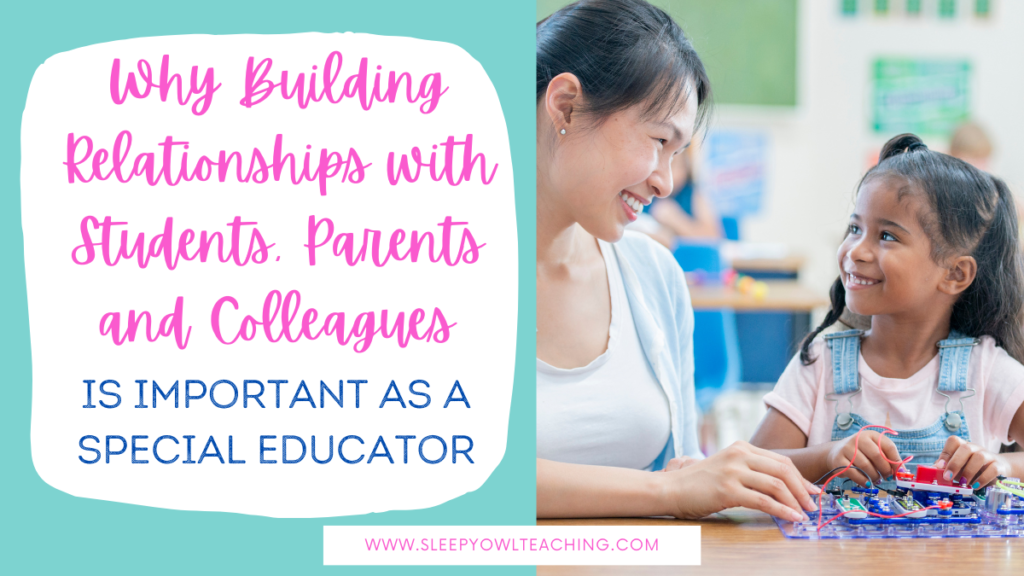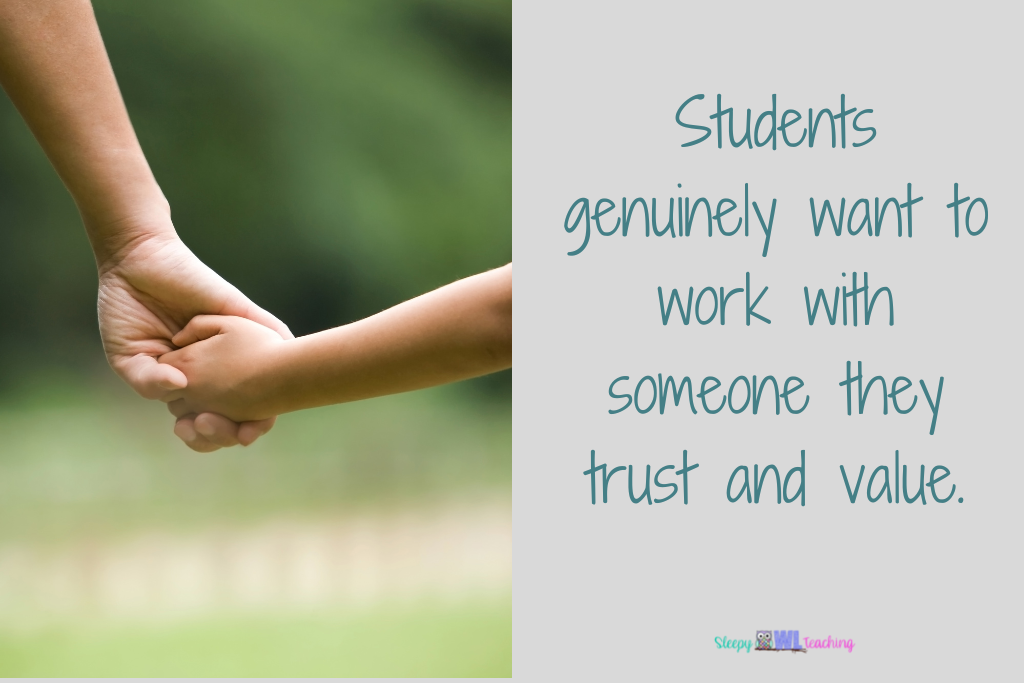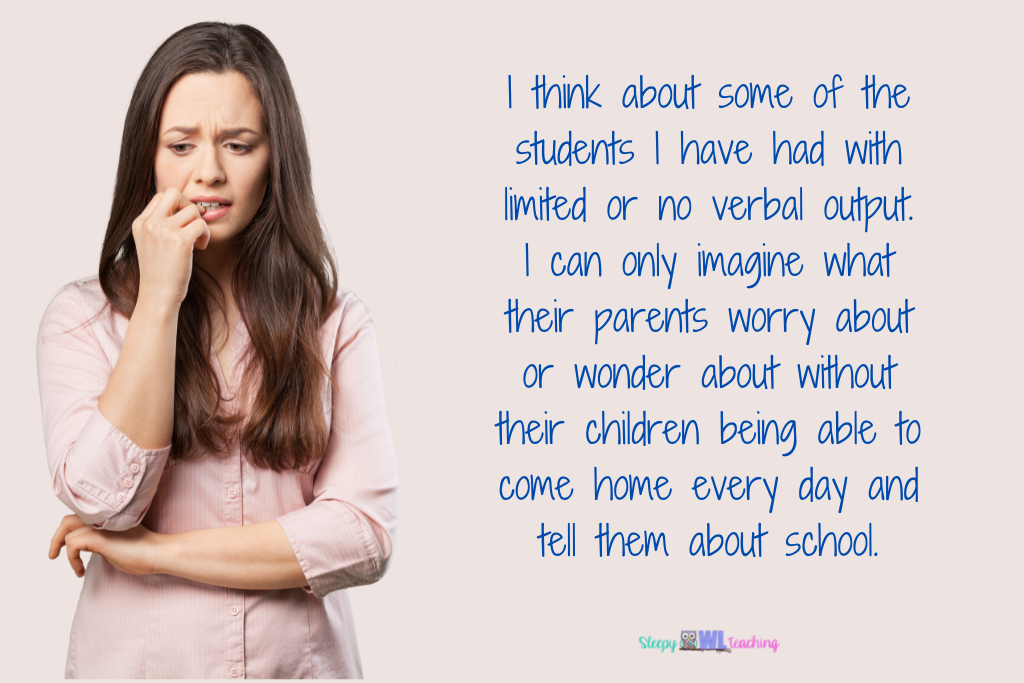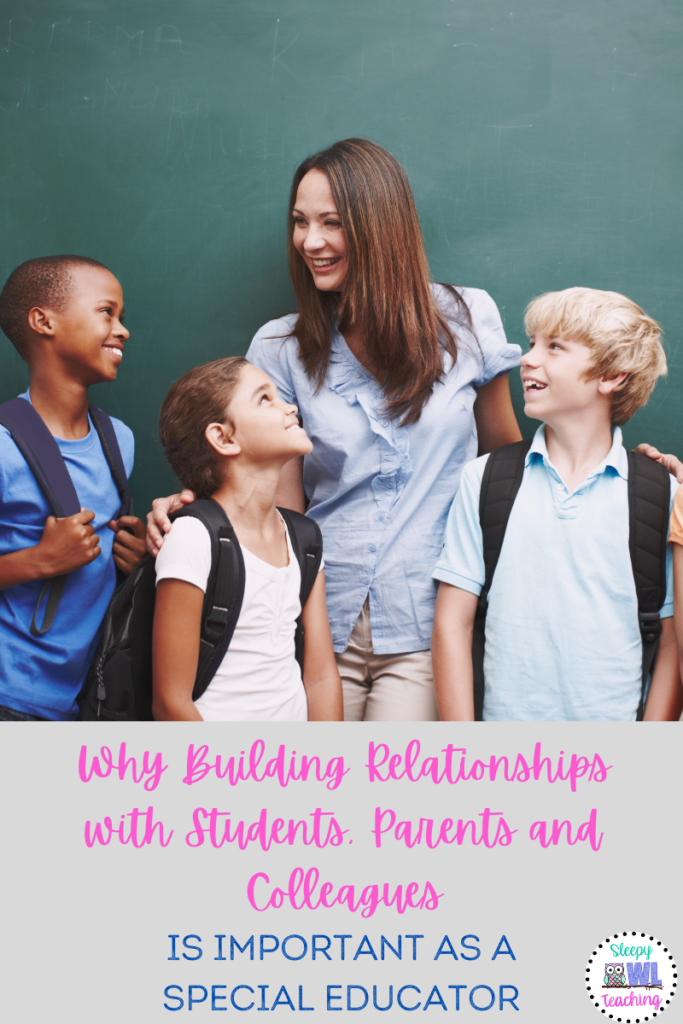This blog post is the first in a new series about building relationships in special education. As a special educator, there is high value in building strong relationships with all parties involved in the job. Building positive relationships encourages trust, compromise, and value. Here, we will briefly talk about the three categories in which building relationships in special education are important.

Building Relationships with Students
How many of us have thought to ourselves, “Man, I wish that student would just try a little harder” or “that student can be so disrespectful”. Raise your hand. We’ve all been there.
Building a positive relationship with students starts with a good foundation. Once this foundation is established, students are more willing to engage in their work, try harder, and behave better. Students genuinely want to work with someone they trust and value. Showing an interest in their interests goes a long way. If they know you are interested in what they have to share, they will be more willing to engage in discussions. Students love to show things off, whether it is their latest drawing or the score of the latest ball game. When they know you are invested in hearing what they have to say, they trust that you like them and are willing to work with them.
Another big component of building relationships with students is respect. If you give students respect, they will acknowledge it and give it back to you. This doesn’t mean always allowing the student to do whatever they want. But if you treat them respectfully, speak to them nicely, and give reasons for what you are saying and doing, students will understand that and give respect back to you.

Building Relationships with Parents
Do you dread the phone call home about a student’s day? Are you never quite sure what a parent might say when they answer the phone or attend a conference? Building strong, positive relationships goes a long way towards alleviating anxiety on your end and also on the parent’s end.
I’ve worked with students of varying special needs and many of my students are with me for multiple years. I think about some of the students I have had with limited or no verbal output. I can only imagine what their parents worry about or wonder about without their children being able to come home every day and tell them about school. This rightfully leads to worries and concerns. I have found that communicating often and early really helps. Check out this post from a few years ago for more information on how I communicate with parents.
I start by sending a letter and survey at the beginning of the year. This is a way for the parents to get to know me and also tell me about themselves and their students. This starts the relationship off on the right foot. Then, as the year goes on I send communications throughout the week. This could be in the form of photos, communication logs, and/or weekly newsletters. I try to keep communication as positive as possible so parents aren’t only hearing negative things about their students. Depending on your class size, you can do what works best for you. Maybe it is just a weekly newsletter, or a positive phone call home every now and then. When parents know the lines of communication are open and they get consistent communication, trust and respect build.

Building Relationships with Colleagues and Team Members
Who is more important than the people you have to work with every day? This could be administrators like principals, fellow teachers, therapists, or service providers. Don’t forget about your school administrative assistant! All these are people you are in contact with every day that can either build you up and make your job easier or tear you down and make your job harder.
Forming positive relationships with your colleagues is important and starts with respect. Respect your colleagues and they will respect you. Showing a little interest in their lives doesn’t hurt either. Drop in now and then and ask about their kids or the vacation they just took. Say a little thank you for something they’ve done recently. Making them feel seen and appreciated creates a positive working environment. People will be more willing to collaborate with you and send appreciation back your way.
Over the next few posts, we will be diving deeper into each of these categories. By the end of this series, you will know why building relationships in special education is important and actionable steps you can take to create these relationships. Stay tuned for more!
If you’d like to learn more about building relationships and why it’s important, check out these articles:
⭐️ 3 Ways to Build Relationships with Parents of Students with Special Needs
⭐️ 3 Ways I Build Strong Relationships with My Students’ Families
⭐️ 6 Strategies for Building Better Student Relationships

Do you have any tips and tricks for building relationships in special education? Do you have examples of why it is important? Let me know in the comments or find me on Instagram @sleepyowlteaching!

